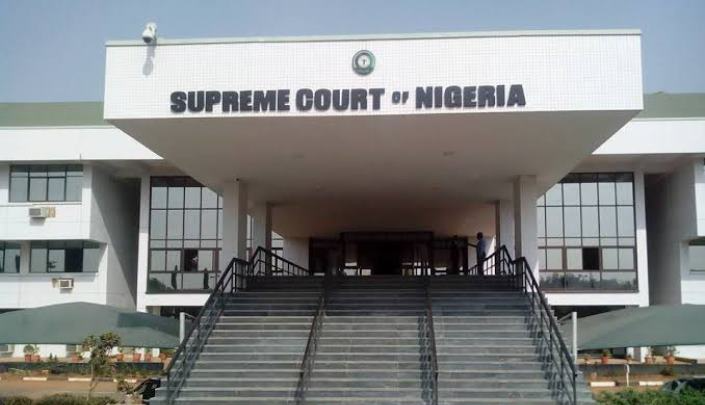Nigerian Guild of Editors (NGE) has commended the Supreme Court of Nigeria for its landmark judgement affirming the applicability of the Freedom of Information (FOI) Act in all states of the federation.
In a unanimous decision, the apex court affirmed that the Freedom of Information Act (FoIA) 2011 applies to all tiers of government, including state institutions.
The FCT Council of the Nigeria Union of Journalists has also applauded the landmark judgment.
Speaking with our correspondent last night, the general secretary of the NGE, the professional body of editors and media executives, Dr. Iyobosa Uwugiaren, described the judgement as a significant milestone in the fight against corruption and in promoting transparency and accountability at all levels of governance in the country.
The NGE stated, “The Supreme Court judgement reinforces the principle of access to information, ensuring citizens’ right to seek and obtain information from government institutions.”
The Guild added that the judgement would enhance transparency and accountability in governance, enabling citizens to make informed decisions and participate actively in the democratic process.
According to the body, by upholding the FOI Act, the Supreme Court has empowered citizens, particularly journalists, to demand information, thereby fostering a culture of openness and good governance.
Dr. Uwugiaren further stated that the NGE as a champion and promoter of press freedom and access to information, welcomed the judgement as a major step forward in the promotion of democratic values and principles.
“We believe that the apex court’s decision will strengthen the role of the media in holding those in power accountable and in promoting transparency in governance,” he stated.
The council chairman, Comrade Grace Ike, in a reaction sent to LEADERSHIP Weekend, described the ruling as a watershed moment for democratic accountability and the rule of law, as it settled long-standing ambiguity regarding the scope of the FOIA and strengthened the hand of every Nigerian journalist committed to the pursuit of truth and transparency in governance.
“This ruling directly reinforces the constitutional mandate enshrined in Section 22 of the 1999 Constitution, which empowers the press and mass media to hold the government accountable to the people.
“With the Supreme Court’s clarification, journalists across the federation, particularly at the state and local levels are now better equipped to pursue investigative journalism without fear of arbitrary denial of access to public records. The judgment reaffirms that transparency must be a constant, not a privilege subject to the whims of state actors,” the council said.
In his reaction, the director of a Lagos-based CSO, Justice and Human Rights Reforms Initiatives (JHRRI), David Babajide, described the judgment as a victory for the rule of law and the fight against corruption in Nigeria.
Babajide said, “With this verdict, state and local governments can no longer operate in secrecy; they are now required to open their books or be compelled by the court to do so.
“The Freedom of Information (FOI) Act aims to promote transparency and accountability in governance across the nation. It is important that all government officials and public servants adhere to this law, as the people have the right to know how their affairs are being managed.
“I commend the justices of the Supreme Court for their courage in delivering this landmark judgment. It has resolved the debate over whether states need to domesticate the FOI Act before they can implement it,” he stated.
Also, Abdul Balogun (SAN) said the Supreme Court had always risen to the occasion whenever necessary. He described the judgement as a sound one that cannot be faulted.
He said, “The apex court has proved to be the final court indeed. It should apply to them because we practice a federal system of government. They should not be exempted from the law.
“Those the governors govern have the right to know what goes on in government and the policies and programmes of government, as well as how their resources are being expended. Let’s hope that the judgement will be obeyed by the state governors.”
Barrister Usman H. Quadri, also express fears that state governments may not obey the judgement.
He described the judgment as laudable. To him, residents of the states can now challenge the policies and programmes of government.
“Some of us have clamoured for this in the past but finally, the Supreme Court has put a seal to our agitation. Now, governments at all levels can be accountable to the people they government. I commend the Supreme Court for the judgement,” he said.
According to Law and Society Magazine, the judgement reinforces transparency and democratic accountability at all levels of government.
This decision marks a decisive reversal of the 2018 majority ruling by the Court of Appeal, Benin Division which had controversially held that the FOIA only applies to federal Ministries, Departments and Agencies (MDAs).
The apex court allowed the appeal by affirming the decision of the trial court that the National Assembly has the legislative competence to enact laws on public records and archives.
The court noted that the FOIA, enacted to promote transparency, citizen engagement and accountability in public governance, is binding across the federation.
The case of Austin Osaku v. EDOSACA SC/614/2014 started in January 6, 2014, after a coalition of civil society organizations filed a Freedom of Information request to the Edo State Agency for the Control of AIDS (EDOSACA). The applicants sought detailed records relating to the HIV/AIDS Programme Development Project (HPDP II), including financial expenditures, grants, donor partnerships, contract awards and criteria for grant allocations between 2011 and 2014.




